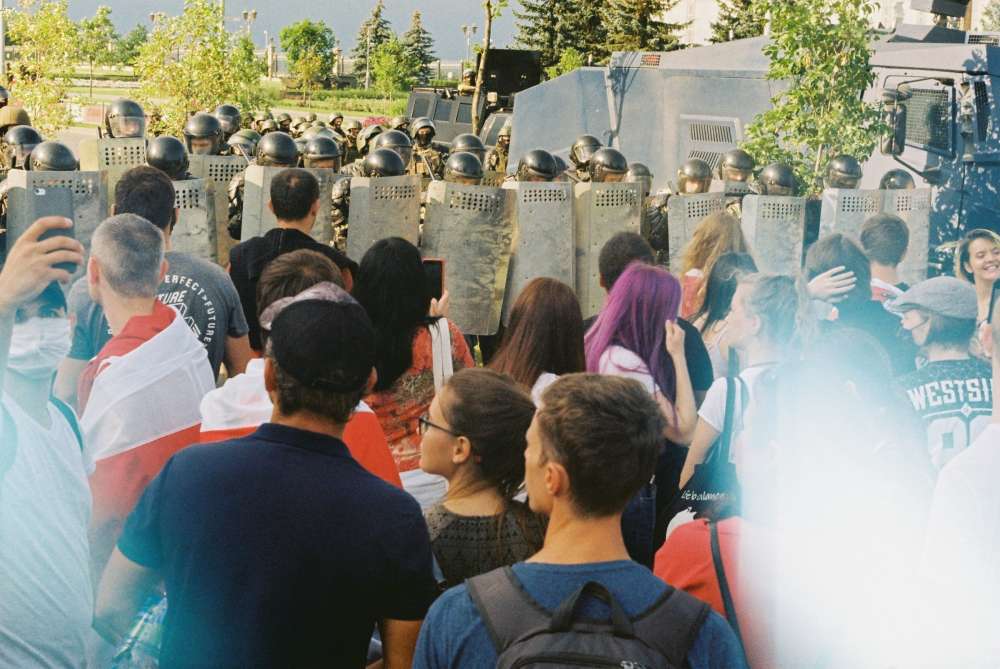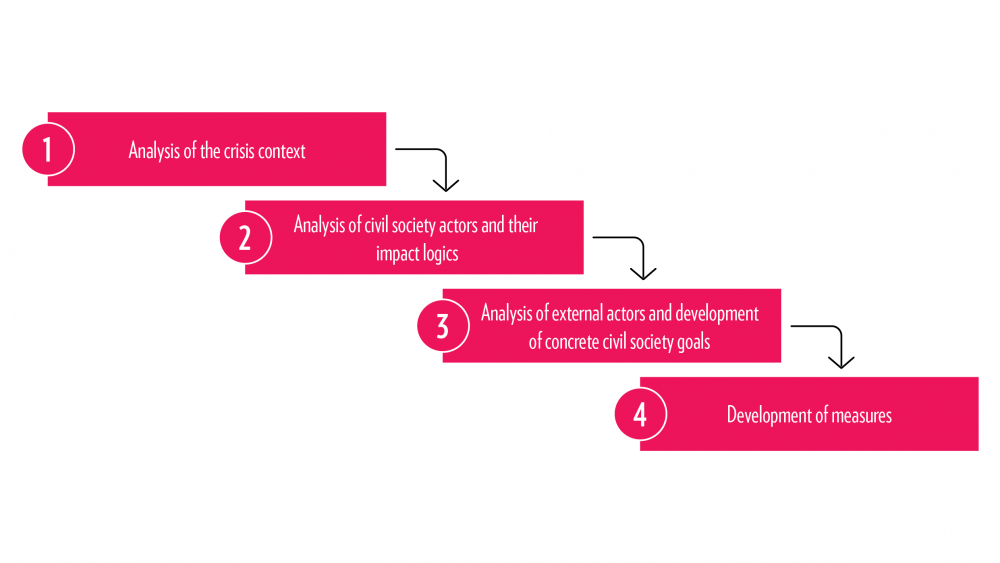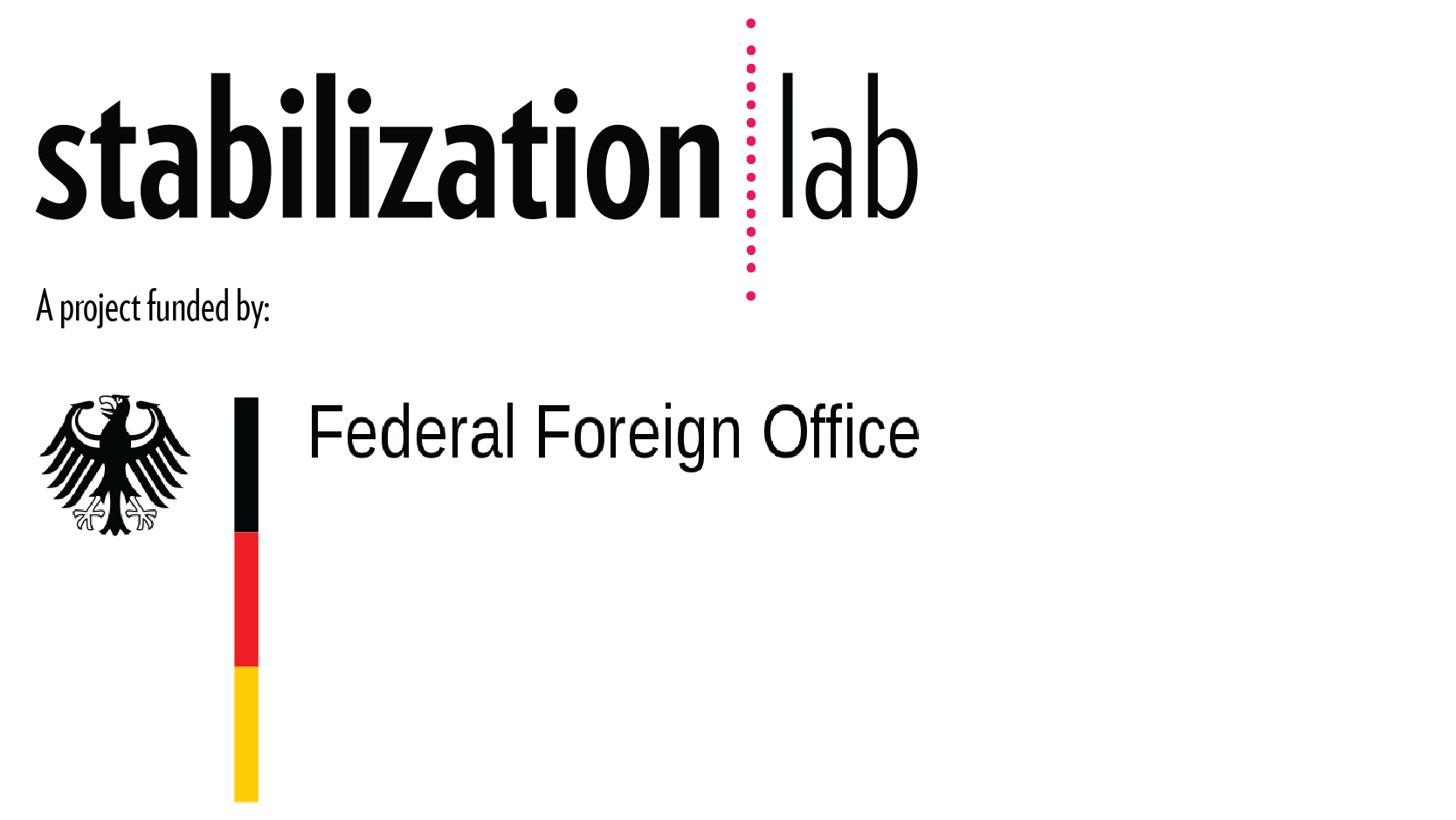Supporting Civil Society in Acute Crises

Whenever a violent crisis gains international attention, ‘supporting civil society’ is among the few prescriptions that Western publics and policymakers easily agree on. Rightly so, since fostering more inclusive governance is an important element of peacebuilding and civil society actors are key to holding their governments to account. However, support to civil society actors in acute crises has rarely lived up to its promises. Donors have often failed to understand the diversity of local civil society and misjudged the importance of different civil society players in shaping the dynamics of a crisis and the way to peace. While outside support has been critically important to many civil societies, a common lack of strategic direction on the part of donors has limited its effectiveness toward better governance, greater stability or peace.
These findings and resulting policy recommendations are based on an analysis of the impact of donor support to civil society actors in four recent crisis settings: Belarus, Sudan, Lebanon, and Mali. In addition to the academic case study literature and publicly available sources, this study is based on almost 100 interviews with donor organization officials, civil society actors and experts across the four country contexts.
A note on key terms: We use ‘civil society’ broadly to capture actors outside of government or parliament (or business) who seek to influence political processes and decisions – whether or not they are formally registered. Thus, this term includes trade unions, media organizations, religious groups as well as various kinds of informal groupings and civic networks. We see ‘stabilization’ as inextricably linked to finding a road toward sustainable peace, not to preserving the ruling system. In fact, effective stabilization often requires change that may bring the risk of violence. Such situations present donors with difficult ethical decisions, and arguably a particular responsibility to protect local civil society partners from harm.
What We Found
- Local civil society actors can be even more consequential political players in crisis environments than often assumed.
- Donors can provide critical support to civil society actors, but their short-term impact on crisis dynamics is often constrained.
- Donor efforts to support civil society tend to lack strategic direction.
- Limited real-time analysis and inflexible processes hinder rapid responses to dynamic crisis situations.
What Donors Should Do
- Engage civil society actors in fragile settings as part of a broader political strategy.
- Establish flexible funding and project approval mechanisms for crisis settings.
- Invest in (closer to) real-time, context-specific knowledge to inform civil society-related activities.
- Design measures to support civil society in crisis contexts at the country/portfolio level.
- Strengthen exchange and strategic coordination on civil society activities across organizations from the same country, as well as among donors with compatible objectives.
- Provide units and staff members involved in the implementation of civil society projects with pragmatic guidance on steps to take in case of sudden changes to the local situation.
Supporting civil society actors in fragile environments to substantially advance crisis mitigation efforts is a challenging task for which donors will never have full control over the outcome. Future efforts in this area should therefore not be overburdened with excessive expectations, but should instead set realistic objectives in light of local conditions. While it is unlikely that more or different support to civil society actors alone will fundamentally change the trajectory of any crisis, the approach recommended here can help donors to develop civil society support into a much more promising instrument in the broader stabilization policy toolkit.
Strategy and Planning Tool
As part of the project, we also developed a strategy and planning tool to support donors to strategically develop portfolios of civil society measures in acute crises.
The tool comprises four analytical steps that logically build on each other. The analysis should be applied in crisis contexts characterized by a high degree of political instability (e.g., in the course of democratization or autocratization processes) and typically by a strong presence of physical violence as a means of political contestation. The tool consists of two parts: (1) a handbook with instructions and explanations on how to use the tool and (2) templates that practitioners can fill out.

Downloads
- Full Study
- Executive Summary and Mali Case Study (FR)
- The Strategy and Planning Tool: Handbook and Templates (ENG)
- The Strategy and Planning Tool: Handbook and Templates (DE)
The study is part of the Stabilization Lab project that investigates different challenges in stabilization policy and practice. Supporting civil society actors in acute crises was the first issue of a series of stabilization dilemmas GPPi will address. The Stabilization Lab is funded by the German Federal Foreign Office.








